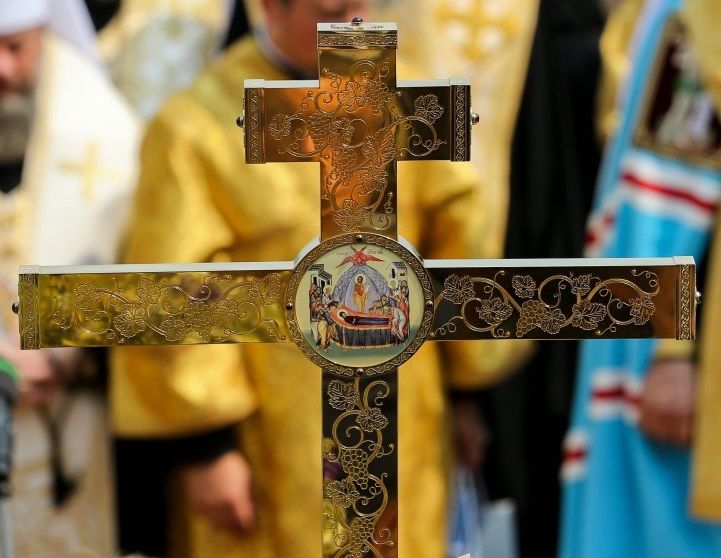
Settlement of the issue with the autocephaly for the Ukrainian Orthodox Church question poses risks to personal safety of the Ecumenical Patriarch, given the historical experience that points to the desperate steps Moscow could take to address any threats to their own interests in the field of religious influence, says religious expert Oleksandr Sahan.
"I hope that those responsible for the security of Patriarch Bartholomew are aware of the depth of the threats to his life, which are now actualized directly and indirectly," Sahan wrote for LB.ua.
Read alsoPropaganda war against Ukraine's aspirations to gain Tomos on autocephaly
The idea of Ukrainian autocephaly is nothing new and has already seen a precedent almost a century ago, according to the expert. In 1924, the Kyiv Metropolia has already received confirmation of being illegally (non-canonically) pulled under the jurisdiction of the Moscow Patriarchate. This was laid down in the Tomos for the Orthodox Church in Poland. This is exactly how this Church is defined in Tomos of the Patriarch of Constantinople (instead of being called the Polish Orthodox Church), since it was not about the Poles, but about the part of the Kyiv Orthodox Metropolia (Ukrainians and Belarusians) in the territory of Poland.
At the time, this caused harsh rejection by the then Soviet leaders. Although Vladimir Lenin and his entourage saw Orthodox Church as their ideological rival, thus trying to either destroy most of it or make clerics serve the Communist authorities, on the international arena they clearly defended the interests of the Moscow Patriarchate. The reason for this is quite traditional - any empire (the Soviet one is no exception) is very sensitive to symbolism, and even more so – to historical heredity.
Read alsoAutocephaly: Goal, path, collision of interests – expert
The very process of signing and conferring Tomas to Ukrainians and Belarusians in Poland was delayed for two years and accompanied by as many as four Constantinople Patriarchs. Two of them were forced to renounce their throne, and one, being a healthy man, suddenly died three days after the signing of Tomos. Therefore, the handing-over of the document took place almost with a 12-month pause.
Therefore, both in the historical retrospect and today, the solution of the "Ukrainian" Orthodox Church question bears significant risks for the Patriarchate of Constantinople in general and personally for the Ecumenical Patriarch. This is one of the major factors behind the current slowdown in the process of consideration of Tomos for Ukraine and appointment of additional consultations with mutually recognized Orthodox Churches.
Given the historical experience, the official statement of the Moscow Patriarchate, Metropolitan Ilarion Alfeyev, of a possible bloodshed in case the Tomos is granted is being perceived very seriously. Besides, there have been disinformation spins about the allegedly deteriorating health of the Ecumenical Patriarch.
Due to these circumstances, it is important to beware of the physical removal of the current Patriarch of Constantinople, Bartholomew, which could suspend for many years the recognition of the autocephaly of the Ukrainian Local Church (and therefore the temptation to exploit this opportunity is increasing on the part of the party of interest).
"Therefore, we must realize and appreciate personal courage of Patriarch Bartholomew, who is not subjected to divergent blackmail by the Moscow Patriarchate and Moscow secular diplomacy, continuing his course on recognizing the Local Orthodox Church in Ukraine," writes Sahan. "And I also hope that the those responsible for Bartholomew's security are aware of all the depth of the threats to his life, which are now actualized directly and indirectly."

